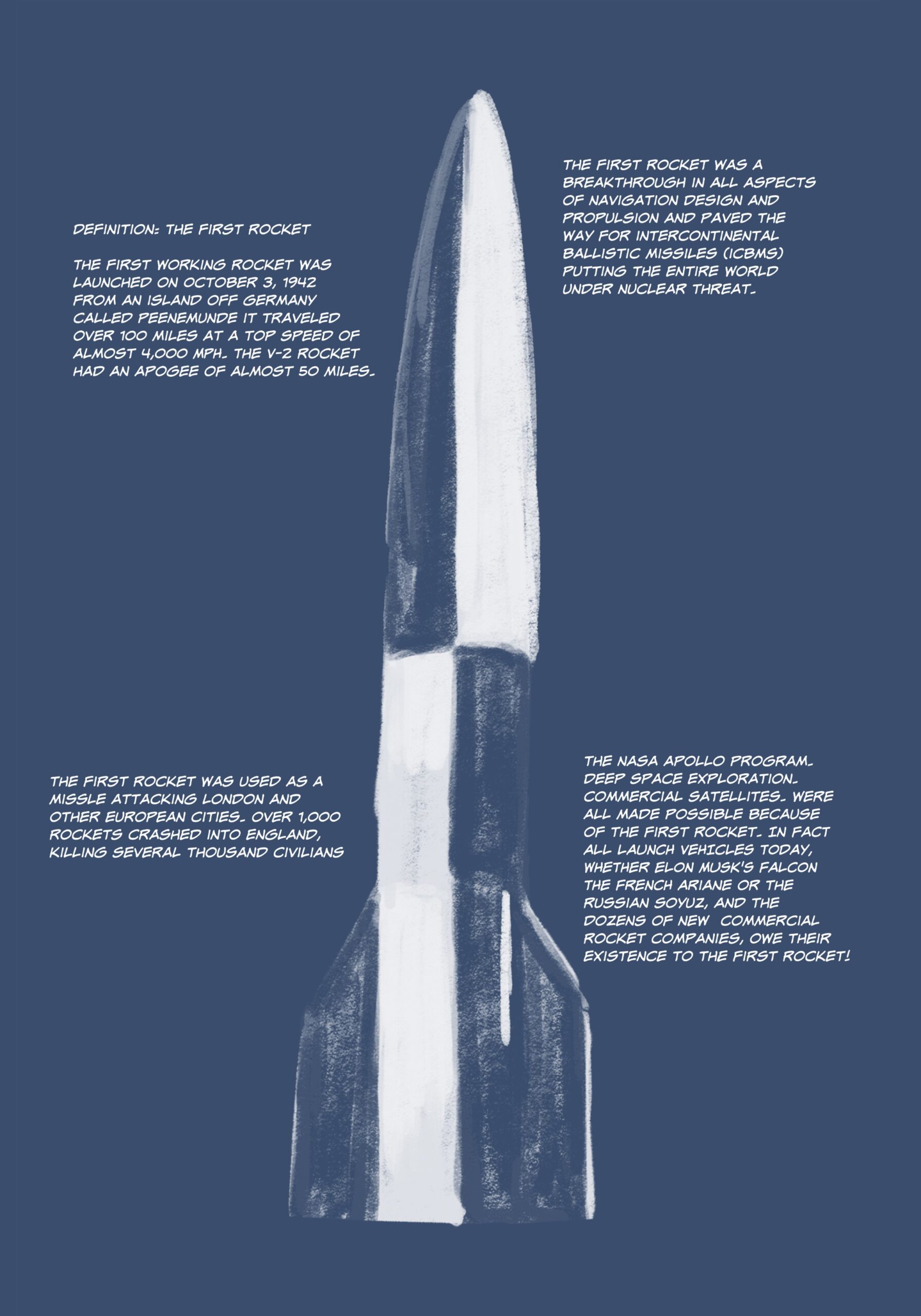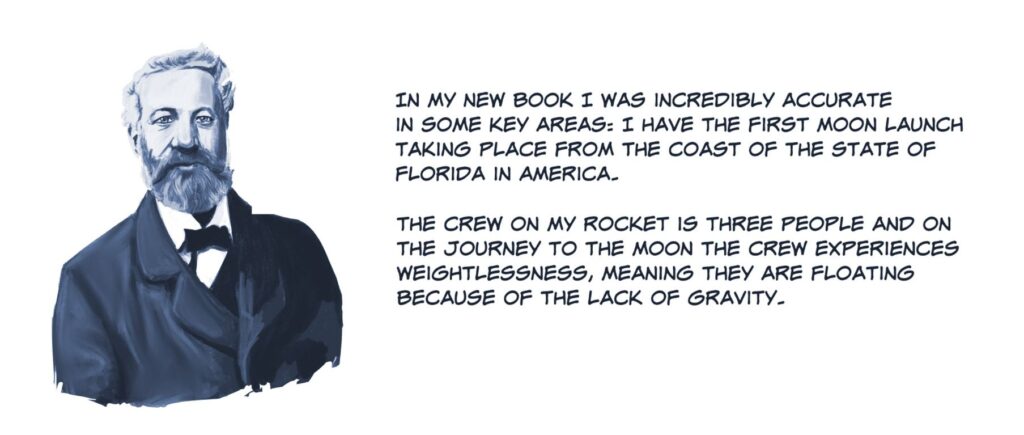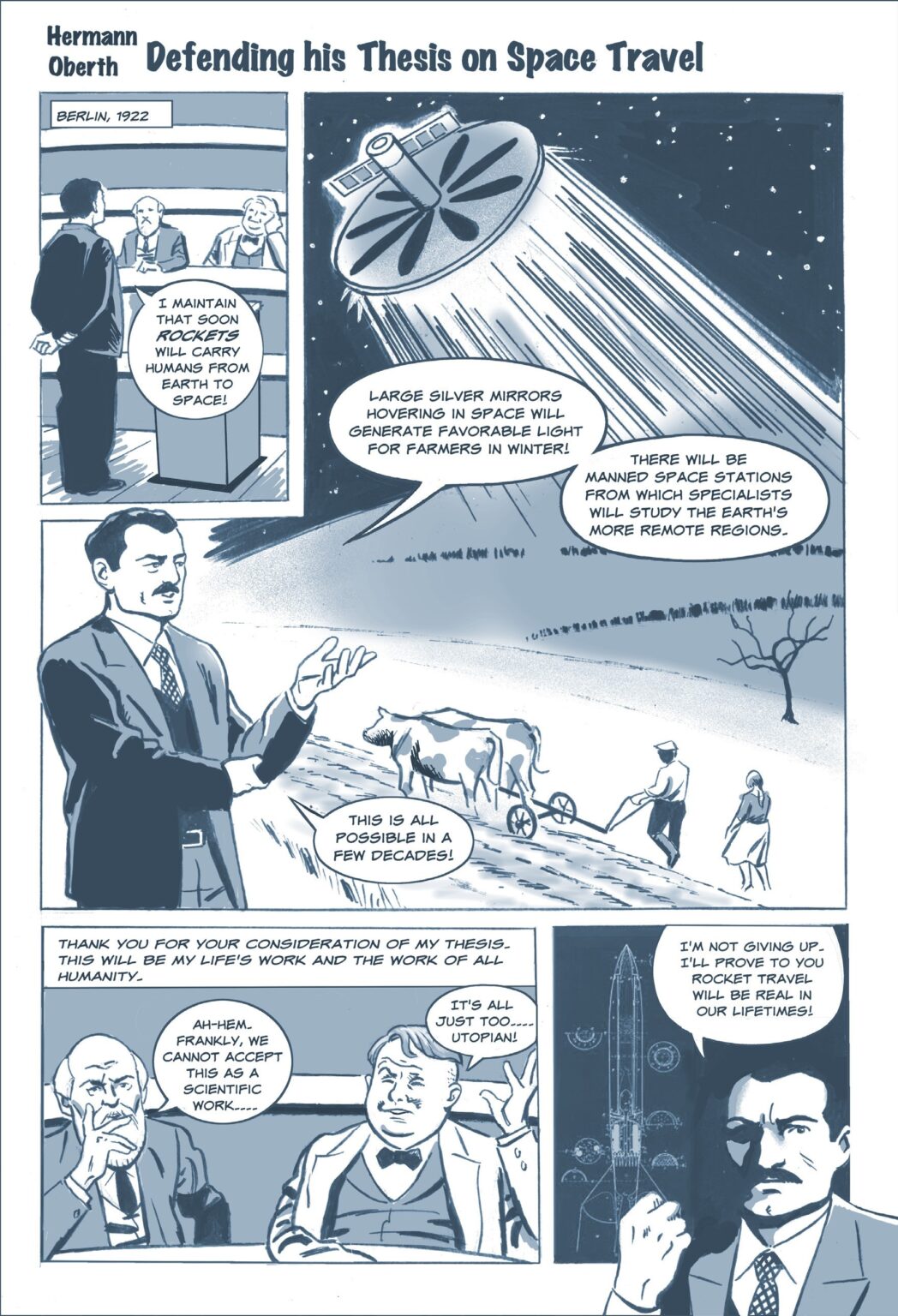Episode 1


Contents


If there is any one single event that set into motion the series of multinational events that began the true exploration of space, it was the publication of a book at the same time that the American Civil War was winding down.
In 1865 the French writer Jules Verne wrote De la Terre à la Lune (From the Earth to the Moon), the story of a three-man crew who are shot to the Moon by a long cannon built by the “Baltimore Gun Club.”
Verne was known already for writing about extraordinary voyages like Twenty Thousand Leagues Under the Sea and Journey to the Center of the Earth. This time, he turned his attention to space travel and changed humankind forever.

Others, of course, thought of space travel far before the French author. I mean, the ancient Chinese and Babylonians and Mongols had stories of humans leaving the earth and living in the heavens. The 17th-century Turks had a fable of a man flying to space using hundreds of pounds of gunpowder.
That was a brave explorer! And Hindu texts have flying spacecraft, translated as Vinmana aircraft, that could fly to the Moon and some say resemble the popular images of UFO’s.
But in terms of the impact on the general population and, most importantly, the impact on the pioneers who would later write the first mathematical equations that paved the way for the first rockets, there is no question that Verne is the human who truly started us on the path to rocket travel.
How?
It is interesting, but not that important, that he nailed the launch location of humanity’s first voyage to the Moon—Florida. I don’t think anyone knows why he picked Florida. It is interesting, but also not that important, that the crew is a three-man crew, just like in the Apollo missions. Was NASA influenced by Jules Verne?
What is important about From the Earth to the Moon is that Jules Verne tried, really tried, to make the space voyage as technically accurate as possible for a time when no cars existed, no planes, no telephones.
The author did his own calculations to show that the idea of the cannon as a launcher would work. And that was new. The story stands in contrast to The First Men in the Moon, the H.G. Wells novel of 1901, that had his crew travel to the Moon via an antigravity machine. Kinda cool but kinda unrealistic.
There are three hugely important connections from young readers of Verne’s book to the race to build the first rockets.
Romanian-German Hermann Oberth, who helped launch the German rocket effort and served as a mentor to Wernher von Braun, later swore that he had memorized the entire novel!
Selected Images From Episode 1

